25 Hard Truths About Being a Photographer
My photography story is so similar to everyone else’s photography story, it barely deserves mentioning, other than to qualify me as yet another pro photographer who started out as a dreamy kid with a beautifully-constructed 35mm camera. When I held it, it emanated powerful dreams of wandering the world, capturing moments, doing cover shoots for Time, Vanity Fair and NatGeo, hiking unmarked trails, holding my breath as I captured the flights of never-photographed bald eagles.
In fact, that is (sort of) what photography is like. Shooting is still one of my purest pleasures. What makes it hard is not the actual photographing, but every little thing that surrounds it. And for that, I’ve made a list. It’s all those small and sometimes big things that swirl around the job that I never imagined would be part of this crazy profession. Is it worth all of it? I think so. But it definitely gets crazy sometimes.
Here are 25 hard truths I’ve had to come to terms with as a photographer:
1 : Labor of Love? Try Love of Labor
When people say something is a labor of love, it’s usually “love” that gets all the attention. But with photography, it’s at least as much labor as love. We’re talking about suitcases of equipment that can weigh over 50 lbs. Lights, reflectors, apple boxes – it’s heavy, unwieldy and of course far too expensive to leave in your car. When people tell me they are also photographers, my first comment is, “Is your back okay?”
All illustrations by Sofía Aparicio.
PRO TIP: Keep your equipment and chargers as close to the front door as possible.2 : It’s Not You, It’s the Camera
You’re going to hear the following words spoken, “Wow, beautiful shot, you must have a nice camera.” After a while, you stop fighting it or trying to argue and simply accept that it’s not you but the equipment that makes those shots look so good. Resistance is futile.
PRO TIP: If you want to get back at them, tell everyone that the incredible photo that took you all day to get was an accident.3 : You Will Fall Victim to Sensor Dust!
Here’s something all photographers go through at some point: your photoshoot is going well, you peek at some of the photos and they look great! You get home and download them and finally see them on the large screen and WHAT’S THAT??? SPOTS ALL OVER MY BEAUTIFUL SKY!! ON EVERY PHOTO!!???? WHYYYY???!!!
Welcome to sensor dust and hours and hours of retouching. It happens to everyone. We just deal with it and go get the thing cleaned and vow never to shoot in nature again.
PRO TIP: Don’t clean the sensor yourself. This is a job for a pro. The irony of ironies of course is that the closer to nature you live, most likely the further away from a camera shop you are, too. WHYYYY??!!!4 : There’s No Calling in Sick
When it’s shoot day, there’s no turning back. Unless it’s just a casual shoot, there are normally too many people relying on you to just call it in for the day. Fever? Runny nose? Headache? You end up just suffering through. The good news about being a sick photographer is that, often, actual shooting time is only a few hours. A good set of meds can usually get you through it.
PRO TIP: When it’s critically bad – like you need to get to the hospital – having a backup photographer handy can save the day for you. Keep your contact list filled with people you trust and call them as soon as you think you might need them.5 : Working for Free
It’s one of the bigger topics that comes up in discussion groups: the amount of people who want free photography. Photographers deal with this all the time. There are friends and family, people without means, non-profits, test shoots, self-generated assignments. As a rule, I make sure that every shoot has a value associated with it. It does not always mean cash, but it must always mean forward movement for my career.
PRO TIP: Keep track of all expenses, even for test shoots and stuff you do just to grow your business. It helps with taxes and puts the correct seriousness on your professional endeavors.6 : Your Work Gets Stolen
I know it’s hard to believe, but sometimes bad things happen on the Internet. That extends to photography, too. Browsers have made it incredibly easy to steal people’s images and use them without you knowing. It’s not uncommon to find your photo being used by someone else without your permission.
PRO TIP: When contacting people about their rights infringement, it can pay to give them the benefit of the doubt, at first. A tactful and respectful approach might just turn them into your next client. And I’ve never had anyone refuse to take down a photo. But there are definitely resources to help you, legally, if you need it.7 : You Shoot but Don’t Always Show
Some shoots pay you money but don’t end up in your book. In fact, nearly all photographers I know have consistent work that they never show. And sometimes never even see! Big clients oftentimes just take your images straight from the shoot and do the post work with someone else.
PRO TIP: As a pro, you learn to absolutely covet this kind of work. It is consistent, predictable and has the power to make your life manageable. While it may not yield front-of-the-website imagery, it should be prioritized and treated specially.8 : You’re Basically Going to Use Two Lenses
After all of the lusting and buying and wishing and collecting, when it comes down to the gigs you just can’t afford to mess up on, most photographers rely heavily on the 24-70mm and 70-200mm for a large portion of their shoots, if not the entirety of them. In truth, most shoots don’t last very long, so experimenting with lenses isn’t even an option. In these high-pressure affairs, you’ll end up using what you know is going to yield results. And the rest of the lenses sit comfortably in your camera case.
PRO TIP: The best way to spend your extra money is on two bodies. Nothing will save you time like being able to grab a second camera with your second lens already on it.9 : You’re One in a Million
No, literally, there are a million photographers out there and you’re swimming around trying to stand out like a sardine in a swirling school of other frantic sardines. Welcome to the new world where incredible equipment and self-promotion have been democratized to the point of ubiquity. Sound horrible? It’s not so bad. Think of this way: there are tons of us to sympathize with what you’re going through and meet-ups all over the world! Nobody complains that there are so many engineers, doctors or lawyers (okay, they do complain about the lawyers).
And besides, the demand is growing, too. Social media and the world of branded content has made this a priority for nearly every company on Earth. You’re in a rapidly growing field, with plenty of work to go around.
PRO TIP: The great news is that the proliferation of photography has created all kinds of great tools for you to use and examples for you to emulate. There are entire website templates, communities, how-to videos, model services, downloadable forms, accounting software and so much more just waiting to help you out. Take advantage of all of it.
PRO TIP: All of these things are now common to most photographers. If you don’t have any of these things, just ask around. My tools for workflow are: iMac, a separate 5T drive for every year of work, Lightroom with a good file management approach, Dropbox Business Account and I use Backblaze for cloud-based backups.
10 : You Inevitably Become a Photographer/Accountant
Want to get a laugh, ask a photographer who their bookkeeper is. As a photographer, you’re also the CEO of your own business and CEOs of a one-person company have a lot on their plate. There’s marketing, bidding, doing estimates, research and prep work. But the hardest of all of it is managing the books. Because if there’s one thing I know about photographers, it’s that we didn’t get into this because of our accounting skills.
Get yourself on board with some kind of accounting software, be it QuickBooks, FreshBooks or the like. The good ones can track expenses, build estimates, convert to invoices, create re-usable assets and even collect payment. All in one place.
PRO TIP: If you really want to do it right, get an LLC and a business account at a reputable bank. This is going to make life a whole lot easier right around tax time.11 : You Only Get Credit for the Images
Being able to meter, aim and shoot is a great starting place for a photographer, but that’s really just a fraction of what you do. There’s a ton of work on either side of shoot day, including location scouting, casting, coming up with an idea, hiring crew and keeping it fun and lively on set. And that just gets you through shoot day. Afterward, you’ve got to do the processing, cropping, retouching and delivery. Sometimes in multiple sizes! What about video?!
Despite all that you take on, in the end you’re judged almost entirely by the quality of your shots and your portfolio. It’s just how it is, people are focused on the end product and just assume the rest of it is easy.
PRO TIP: Don’t let this keep you from putting a proper estimate together for clients. All of it, from start to finish, is billable.12 : You Get Burnout, Regularly
Only a small portion of photographers can afford to have a staff around them and most are managing everything from marketing to post-production. This puts an incredible amount of pressure on you and it can regularly just burn you out. Photography is like having a full-time hustle, until you become big time – then you have a rep and production companies helping you out with every step. But until then, you just get used to a few mental breakdowns.
PRO TIP: Talk to other photographers, especially pros with more experience than you. They can guide you through the difficult times and are among the few who truly understand what you’re going through.13 : The Beauty Fades
Most photographers who’ve been shooting for a long time develop a kind of jaded, been-there-done-that attitude. “Photography? Meh, it ain’t what it used to be.” This is the nature of having shot so much, to the point of losing a bit of the romantic vision of what can be done with a camera. Suddenly, the beauty of golden light or a nice pocket of light on the street just kind of looks normal to you. Soon, the feeling of “I can’t wait to get out and shoot!” shrinks and gets replaced by “I can’t wait to just be able to leave my camera at home and go enjoy myself.”
PRO TIP: When I start feeling the photographer’s blues, I pick up my film camera and go shoot around in natural light for a while. I find that doing portraits in nature is a great way to reconnect with the medium and renew my love for it. Not every shoot you do needs to fill a hole in your portfolio; some fill a hole in your soul.14 : Then You Find out You’re Not That Original
I’m primarily a black and white photographer. Which means that as good as I get, I’ll always be in the (light and) shadow of more accomplished black and white photographers before me (it’s not fair, they could only shoot in black and white!). I can’t possibly hope to do work that isn’t somehow evocative, or even derivative, of the work of others. But this is true no matter what you’re shooting. No matter how amazing your moment. No matter how dramatic your scene. No matter how creative that architectural crop is. No matter how oddly you place your models. No matter how shallow your depth of field. There’s someone else who’s probably tried it, and maybe even done it better.
As it turns out, though, this perhaps disheartening feeling is a step to an even greater feeling of inclusiveness. Because to get great at photography is hard work. So by the time you reach a place where your work looks as good as others in your genre, you’ll just be glad to have gotten there and taken a seat at that elite table.
PRO TIP: An individual look for a photographer is usually a little twist on something that a lot of people can do. Keep pushing for the specific set of spices that makes your images distinctly yours.15 : Creating for the Little Screen
It’s an irony that as cameras become capable of capturing more and more information and we regularly download 50MB RAW images that could be printed nicely on the side of a skyscraper, that in fact most images are being viewed on a screen only slightly larger than the sensors in our cameras. You’ll find yourself lamenting the incredible detail that people aren’t seeing and wondering whatever happened to the days of print… as you read another news article and watch a YouTube video on your phone.
PRO TIP: Hug the dragon. Knowing what works on mobile is an interesting nut to crack, too. For example, 4×5 vertical shots take up the most amount of real estate on Instagram and have the most impact. As does high contrast imagery and quickly-understood images that evoke emotion or story. Those aren’t the worst things to try to accommodate.16 : A Lot of Talk
People love to talk about photography and so you can count on getting a lot of delving (repetitive) questions and requests for camera reviews. Sometimes it’s nice to be engaged in a field that people are passionate about. And sometimes it can feel like you’re just constantly doling out free advice to people who want quick answers to things you’ve spent a good portion of your life figuring out for yourself.
PRO TIP: Use the opportunity to get another follower on Instagram and offer them a photography workshop.17 : You Discover There Is No Career Path
You’ll know photographers who get more work than you, who do bigger photography jobs than you, who’ve been doing it longer than you. But none of them are “higher” than you. That is, all of us are essentially at the same place in our careers: we are photographers. Unlike some other professions, you don’t make those incremental increases in stature with newer, better titles and consistent pay increases – all of which help to measure progress and growth.
On the plus side, you’re free of the corporate system that keeps you constantly in review, on edge and slave to the grind.
PRO TIP: A lot of photographers are adding things like video, animation overlays, cinemagraphs and even social marketing expertise to their skillset. While photography might be a simple gig, there are tons of ways to expand.18 : It Can Be a Ton of Alone Time
I’m a transplant from another industry (marketing), where everyday I went into an office and my days were predictably peppered with human interactions. In fact, I was often dying for just a little time to myself. But in photography, that’s flipped. The majority of my time is spent with myself – prepping for shoots, working on photos, writing, doing financials, marketing, etc. It takes a lot of self-discipline to be a photographer and a) not get freaked out at the alone time, and b) use the time wisely.
PRO TIP: I’m a big fan of to-do apps. Find a way to keep your own lists of things that need to get done and be a stickler for prioritization and setting manageable goals for yourself every day. Also, make meetings. It might sometimes feel more like “hanging out with a friend,” but call it a meeting anyway.19 : It Can Be Feast or Famine
This is a tough one to write about, as I worry this alone can be a huge deterrent to people looking to get into the business, but it’s something nearly every photographer has to contend with. There’s no guarantee of work in this business, so truly committing to it means that, at the very least, you’ll live in a “feast or famine” kind of lifestyle, where sometimes you’re flush and sometimes you’re scraping by.
I like to say that photography gives and takes. But to get what it gives – a creatively-rewarding and fulfilling endeavor that puts you in touch with incredible people and exciting projects – you also often need to give up on some of the nicer trappings of life. As someone who’s tried both lifestyles, I prefer the life of a photographer more than a well-off corporate citizen, but you’ll have to make that determination for yourself.
PRO TIP: Unlike a lot of other professions, you can actually dip your toe in and see what it’s like before you commit. If you’re thinking about jumping in, I highly recommend trying a few assignments – maybe over a couple years – and see how much you truly enjoy it. Try it on and see if it fits.20 : File Storage and Workflow Become a Major Part of Your Life
These 50MB images pile up quick. No computer can handle all those files by itself – you need a system for archiving images, delivering files to clients and backing up your work. Sometimes it feels like that in and of itself can be a full-time job.
You need a combination of the right software, a file management system, external drives, cloud service and a file backup and recovery system.
PRO TIP: All of these things are now common to most photographers. If you don’t have any of these things, just ask around. My tools for workflow are: iMac, a separate 5T drive for every year of work, Lightroom with a good file management approach, Dropbox Business Account and I use Backblaze for cloud-based backups.
21 : Your Friends Become Jealous of You
While there’s certainly a lot to get yourself worked up about in the world of photography, it’s not without its perks. You’re working with creative people constantly and making tangible things that are rewarding and easy to understand and like. That’s enviable by most of the population, but what really starts to get under other people’s skin is the lifestyle. Your days are basically your own, you have no boss, per se, and you get to play the role of wildly creative artist that is sure to make even your close friends feel like you’ve got the life. And you get to wear flip flops.
PRO TIP: Take their portrait – all is forgiven.22 :You Start to Care Entirely Too Much About Social Media
You don’t want to check in on Instagram every day. After all, it’s only a false construct of robots and algorithms, programmed to cause addictive behavior and create negative emotions. And yet there you are, sucked into the world of growing an audience, engaging with them and curating a portfolio of postage stamp-sized thumbnails, all for momentary blips of templated appreciations and an ethereal digital numeral that cues would-be clients that you know what you’re doing.
PRO TIP: Your Instagram game need not reflect your professional portfolio. Many photographers, including myself, post specific kinds of shots to social media – the kinds that are easy to love and have more punch at smaller sizes.: Your Instagram game need not reflect your professional portfolio. Many photographers, including myself, post specific kinds of shots to social media – the kinds that are easy to love and have more punch at smaller sizes.
23 : Third-Party Validation
When you look at other photographers’ bios, they always seem to have all kinds of awards to their name. They’ve won grants, fellowships, contests and seem to have reached some crazy level of recognition. And while it’s not necessary to have those kinds of accolades to your name to be successful, it does seem to quickly validate you to those who are considering hiring you. And so, you find yourself entering contests and submitting your work for inclusion in journals and award shows. Yet another time-consuming, and sometimes expensive, surrounding element to photography.
PRO TIP: Choose your images first, then seek out the right awards, journals and grants to apply to. It’s too hard to try to bend yourself to the will of every contest out there, stay true to who you are – and want to be – as a photographer and then narrow down your list of entries based on the images you truly believe represent you.
24 : Taking Your Show on the Road Just Sucks
It’s one thing to have a great system at home, with your large monitor and hard drives and strong wifi signal. But try to simulate that on the road and it can get frustrating fast. Not to mention trying to assimilate all those photos – and the work you’ve perhaps done on them on your laptop – back into your workflow at home, when you return.
Road work is just sloppy and frustrating – no way around it. But you endure and if you have a good system, it’s manageable.
PRO TIP: New hard drives, such as the one from GNARBOX, give you both valuable external storage to offload your card’s images as well as access to the images, either through your laptop or your mobile device.
25 : There Will Be Pressure to Constantly Update Your Skillset
You’d think that photography is a pretty simple set of skills, at least once you’ve acquired all the right equipment. But in fact, the business forces you to constantly update and enhance your set of creative capabilities – animation, video, editing, social media, color, retouching and more. Not to mention new software that entices you to change and update your workflow. It helps to be tech-minded and even a bit of a digital explorer to keep yourself constantly relevant and talking the same talk as your clients.
PRO TIP: Animated photos, sometimes referred to as “living photos” or cinemagraphs, are an easy thing to learn and really only require some simple software to use and experiment with. Probably the biggest payoff for the easiest learning curve. Try apps like Pixaloop and Werble to add good-looking effects to your images quickly.
All-in-all, photography is great work that really does give you a unique kind of reward for your creativity and effort. Sure, it comes with some bumps and bruises along the way – but what career doesn’t? Hopefully, at the very least, this prepares you a bit. Or to you veterans out there, lets you know you’re not alone. Happy shooting!
![We The People ! [ Daily News ]](https://blogger.googleusercontent.com/img/b/R29vZ2xl/AVvXsEi7PNflLYO2id_pgKevcLALLVghNAUKitpe3VQpV5fJatRfWJCD5mtlJzat6fUgV7ymgMyAe1yNdVgoDeLbqc_5gXJpSzYE50pYDire_RBxd0JWLL96a-4NaYWD4QJ3EAFuXN6gNo1L5gs/s1600/LogoMakr_5zKJMi.png)

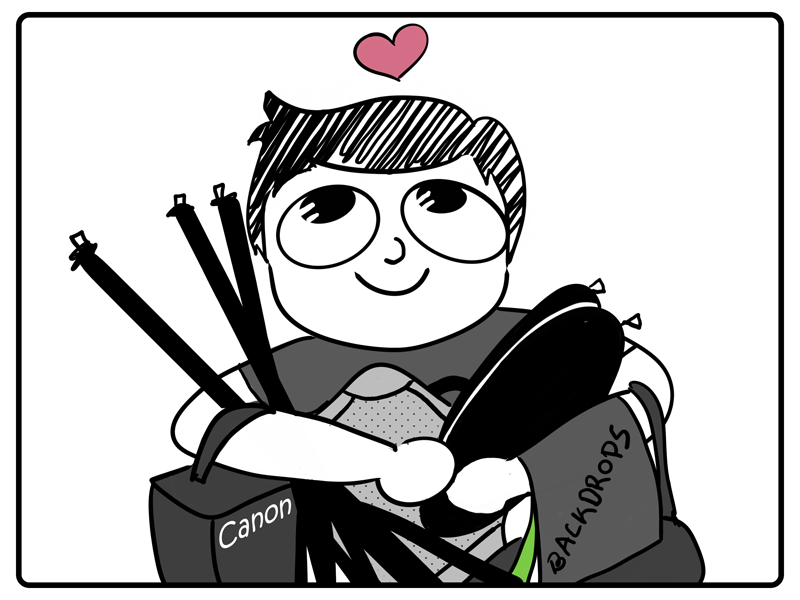

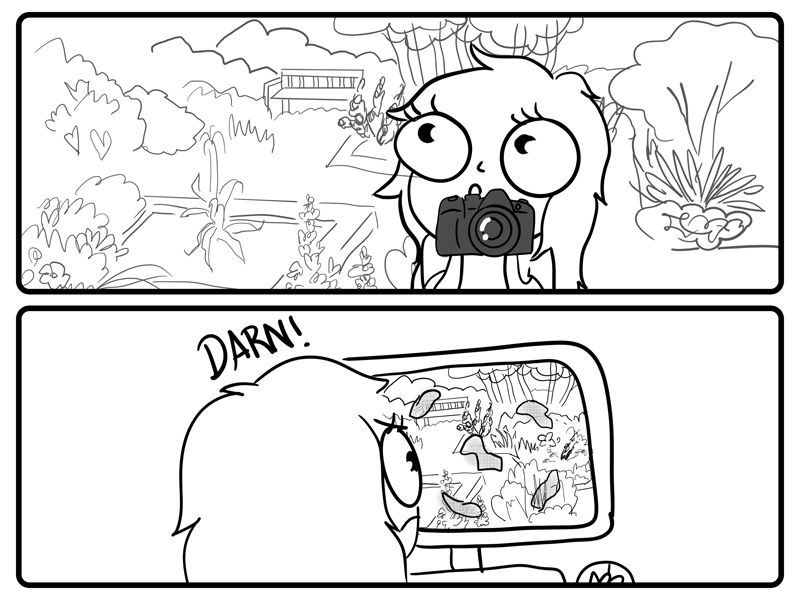

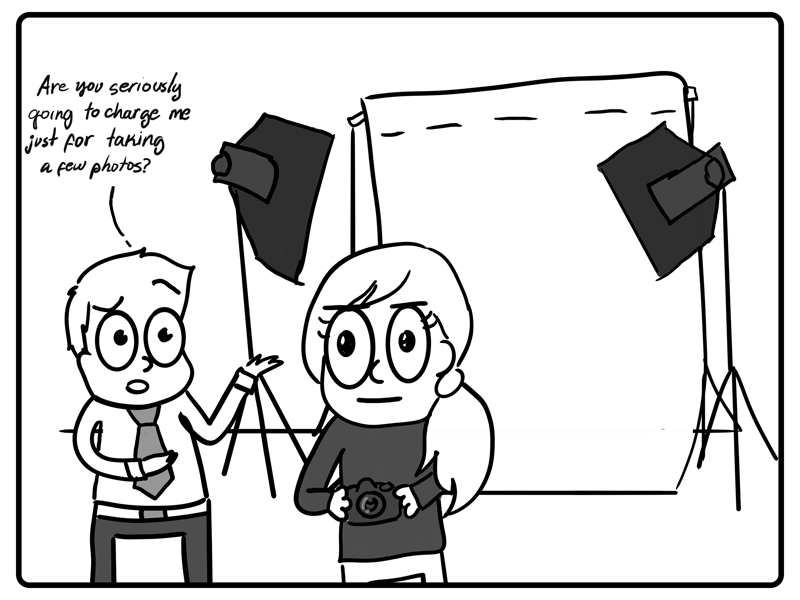
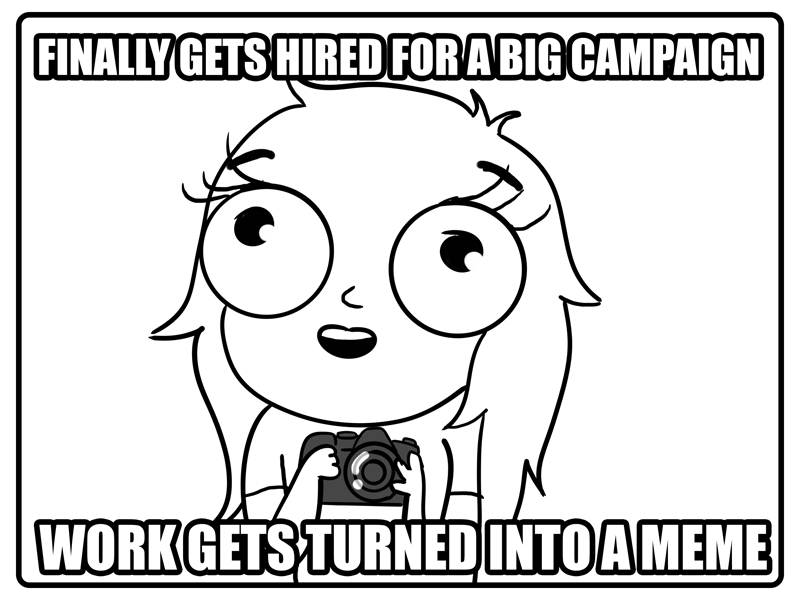
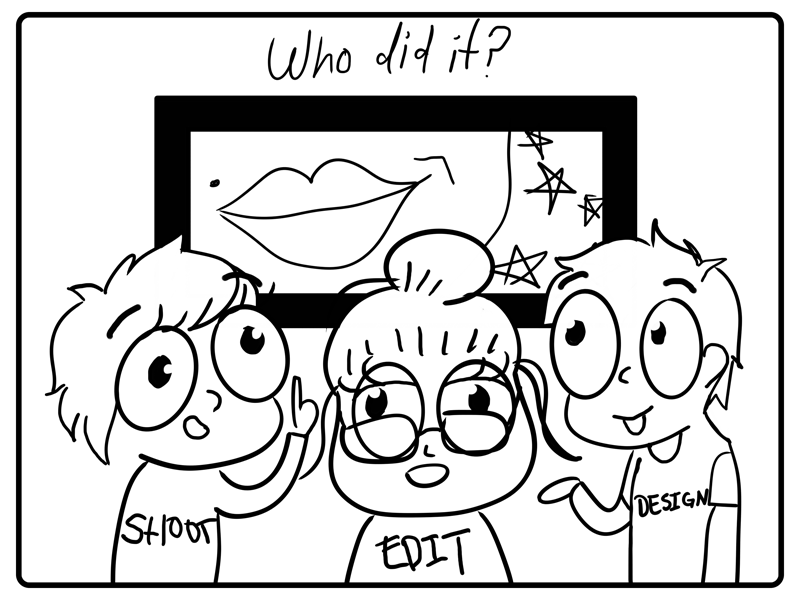
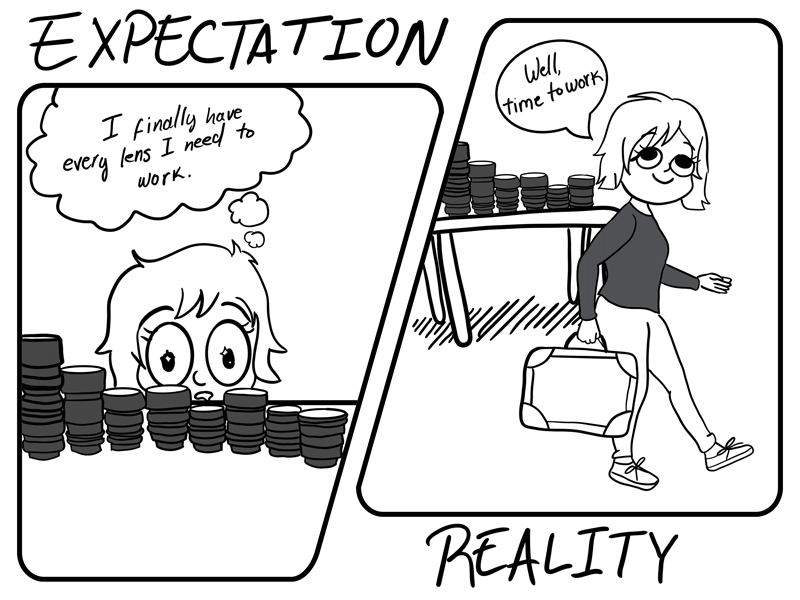



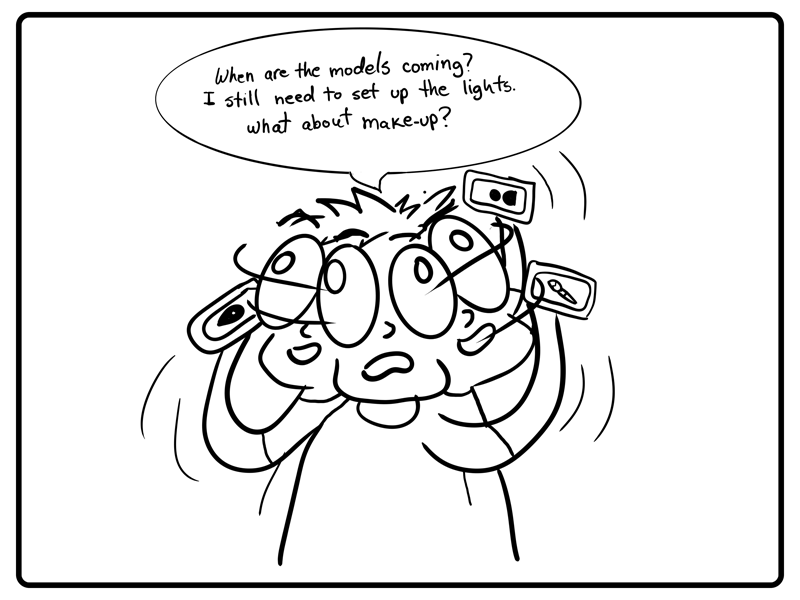
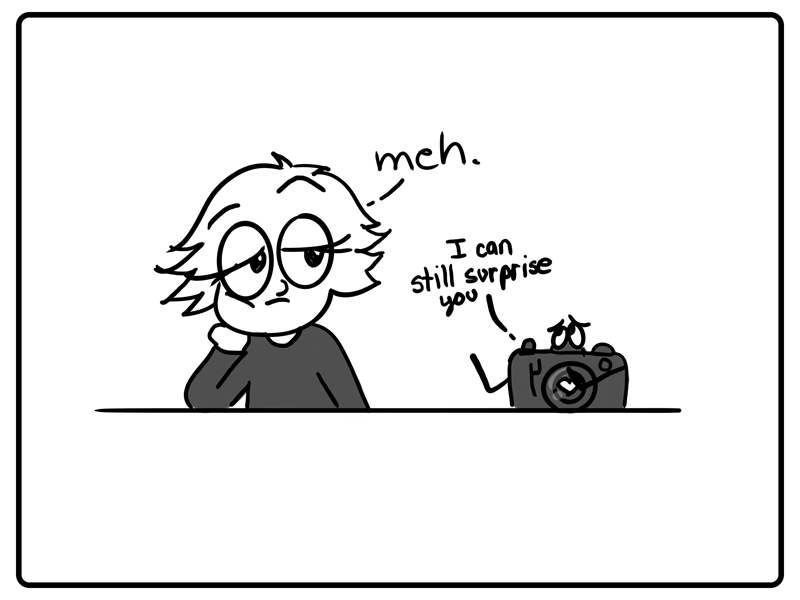
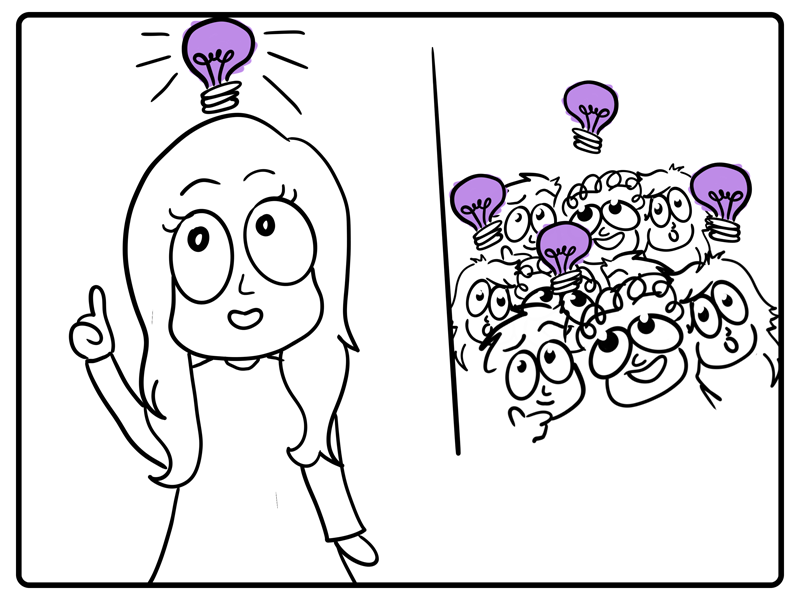
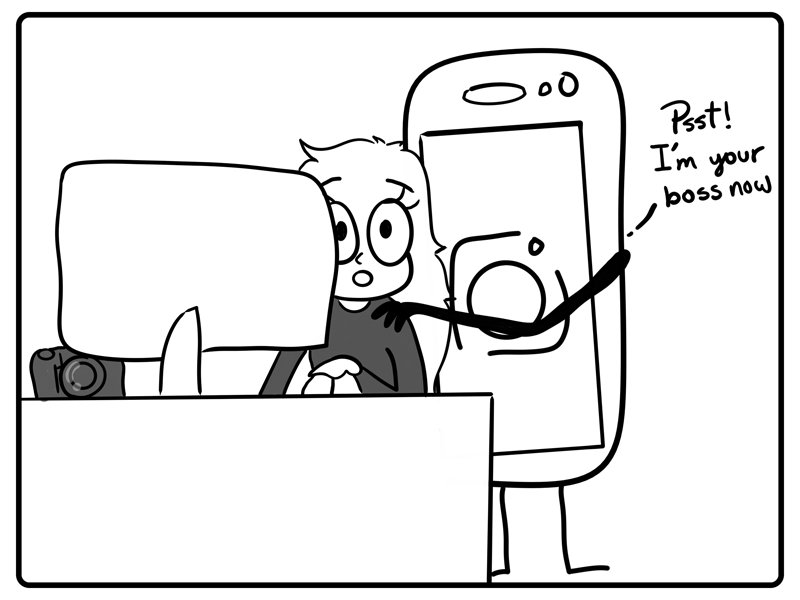
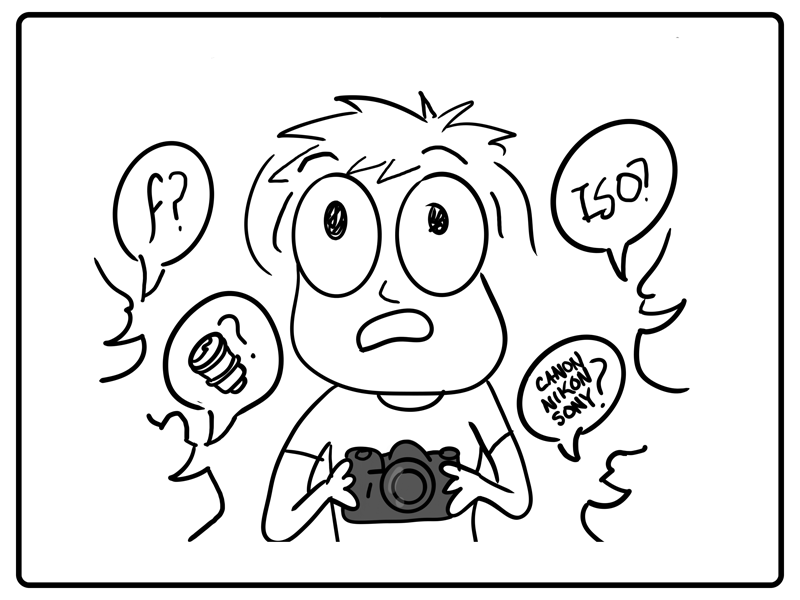
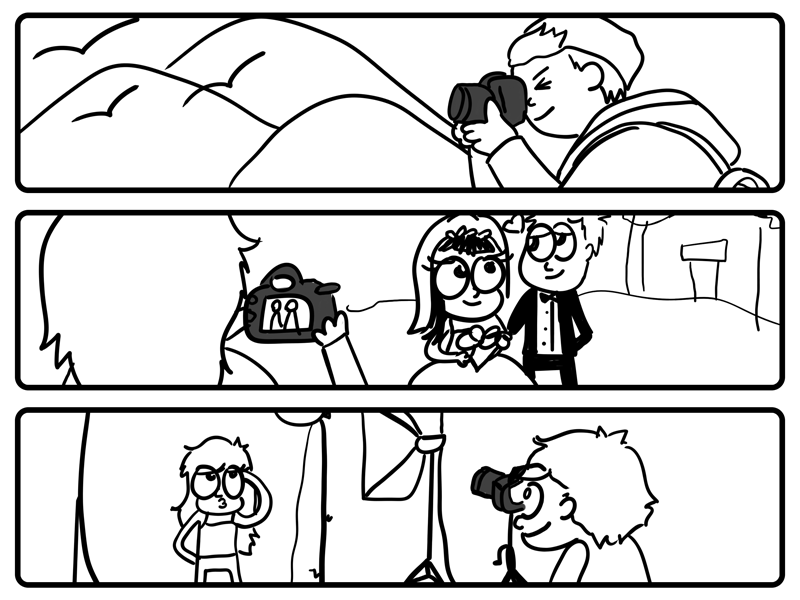

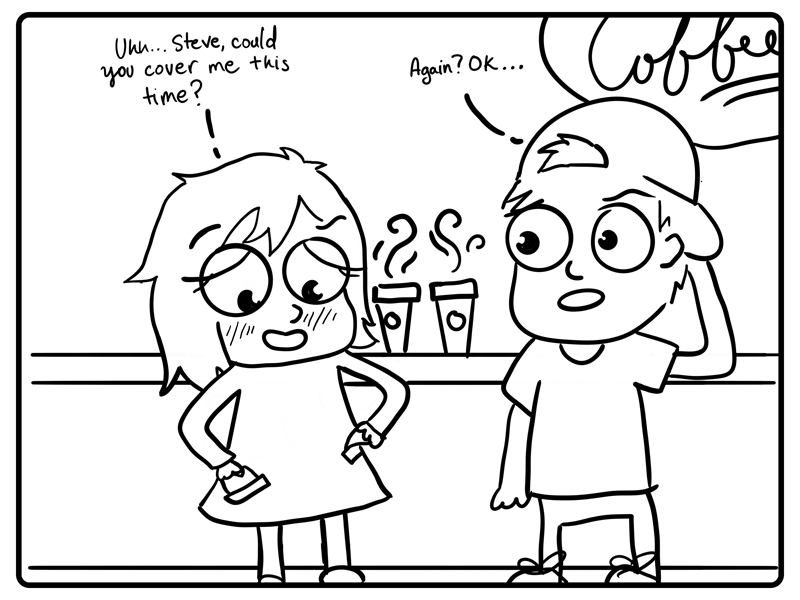
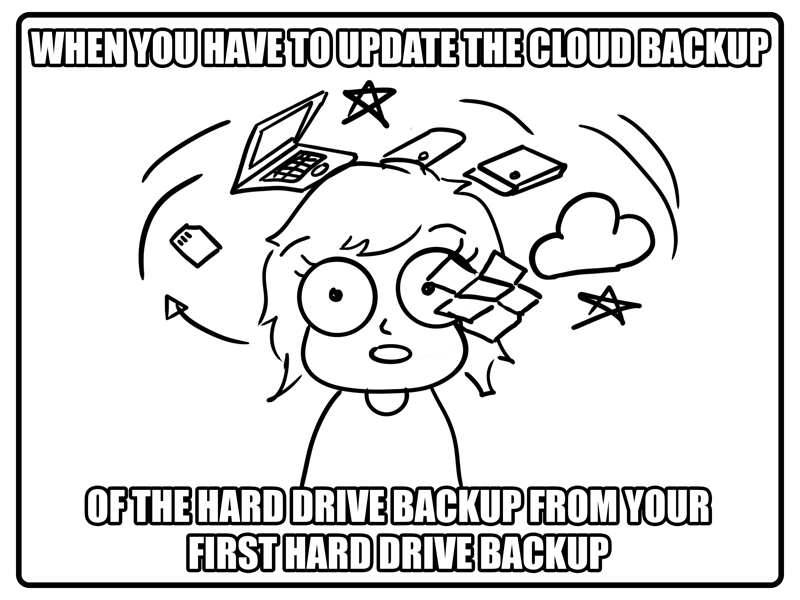
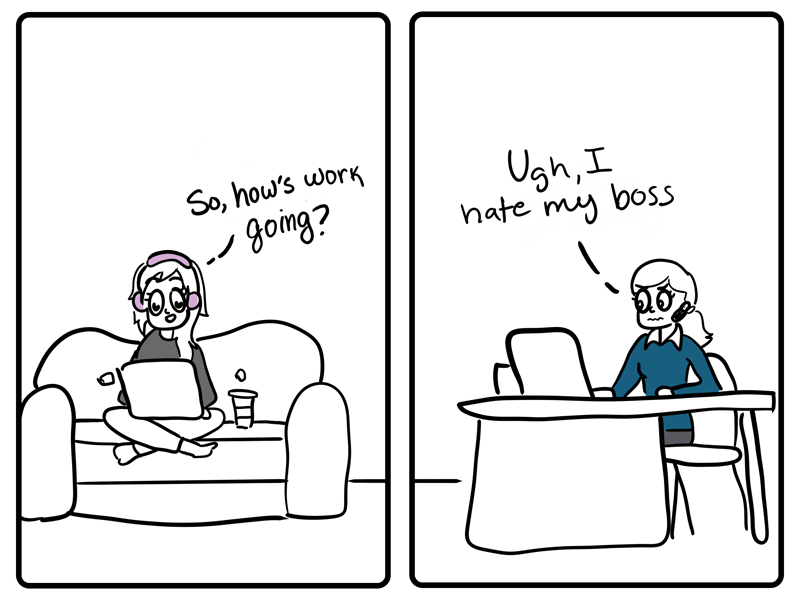



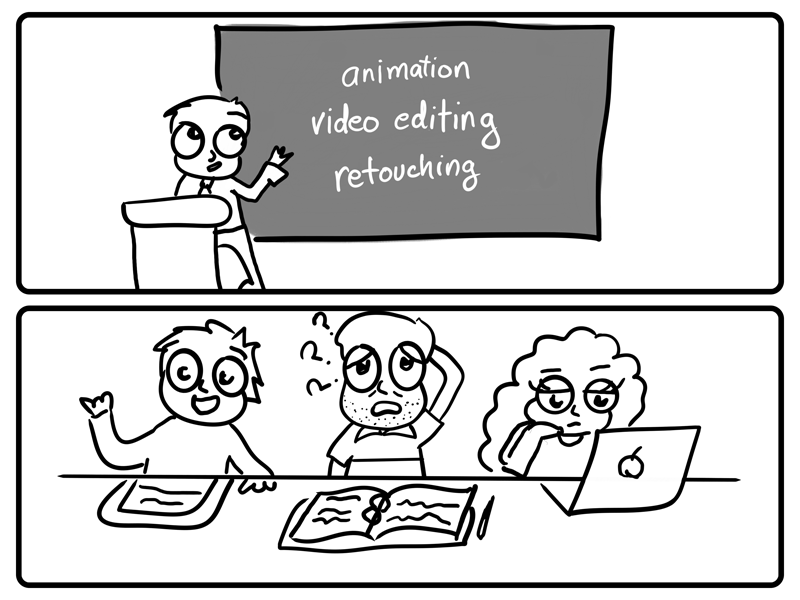











No comments:
Post a Comment